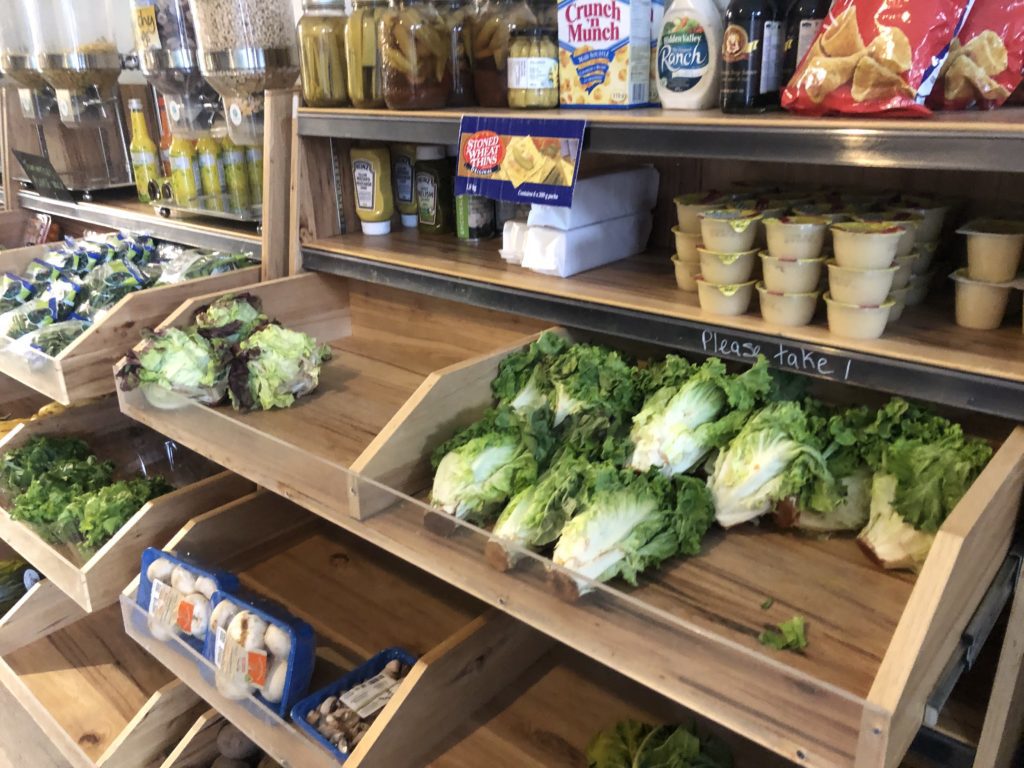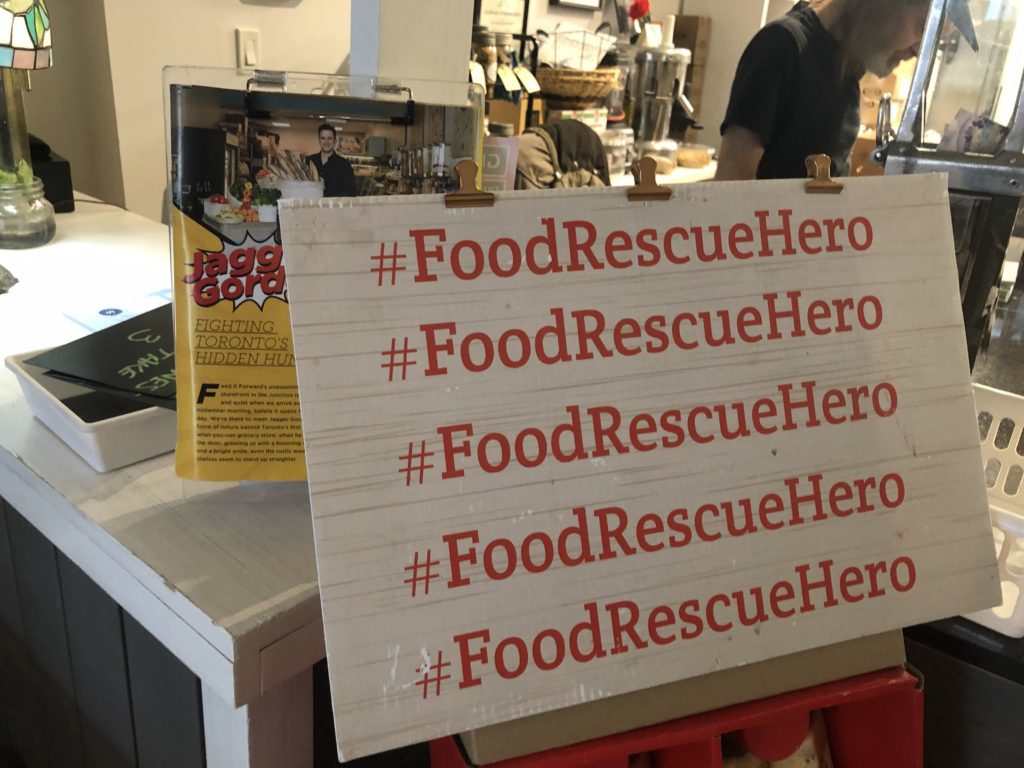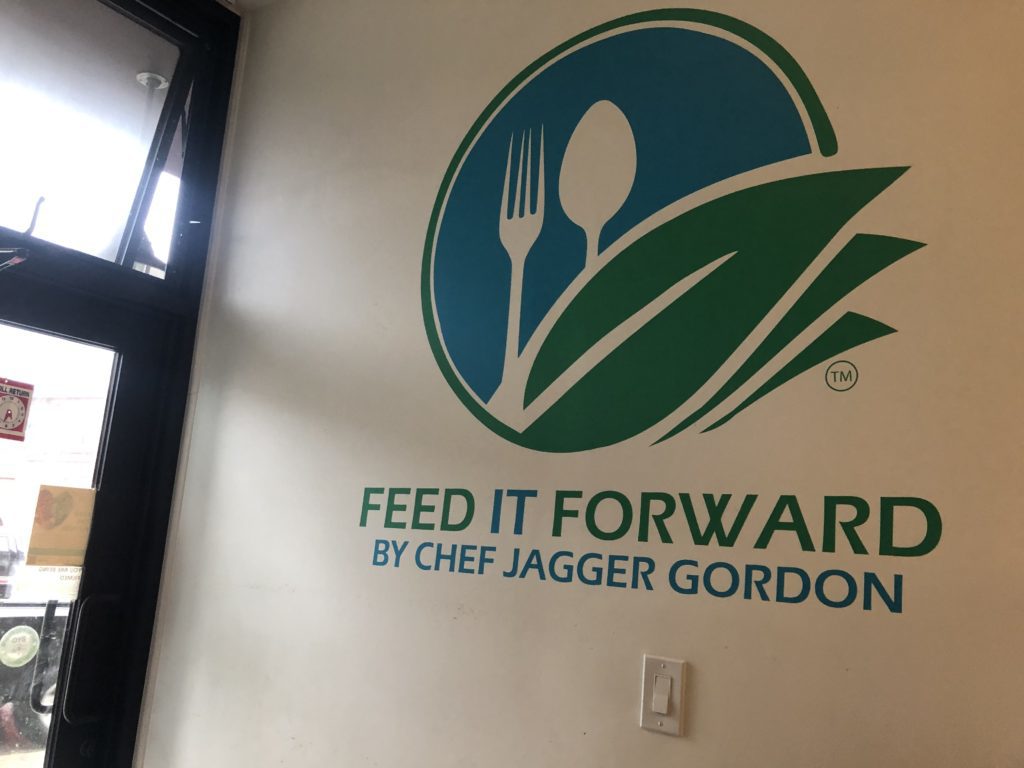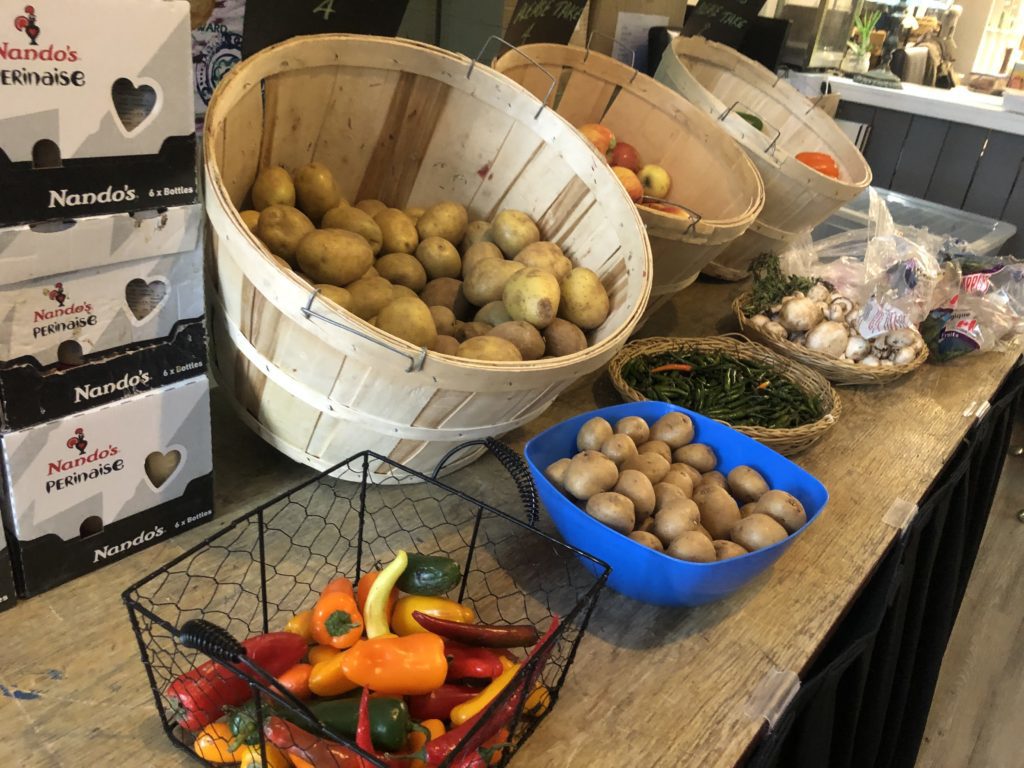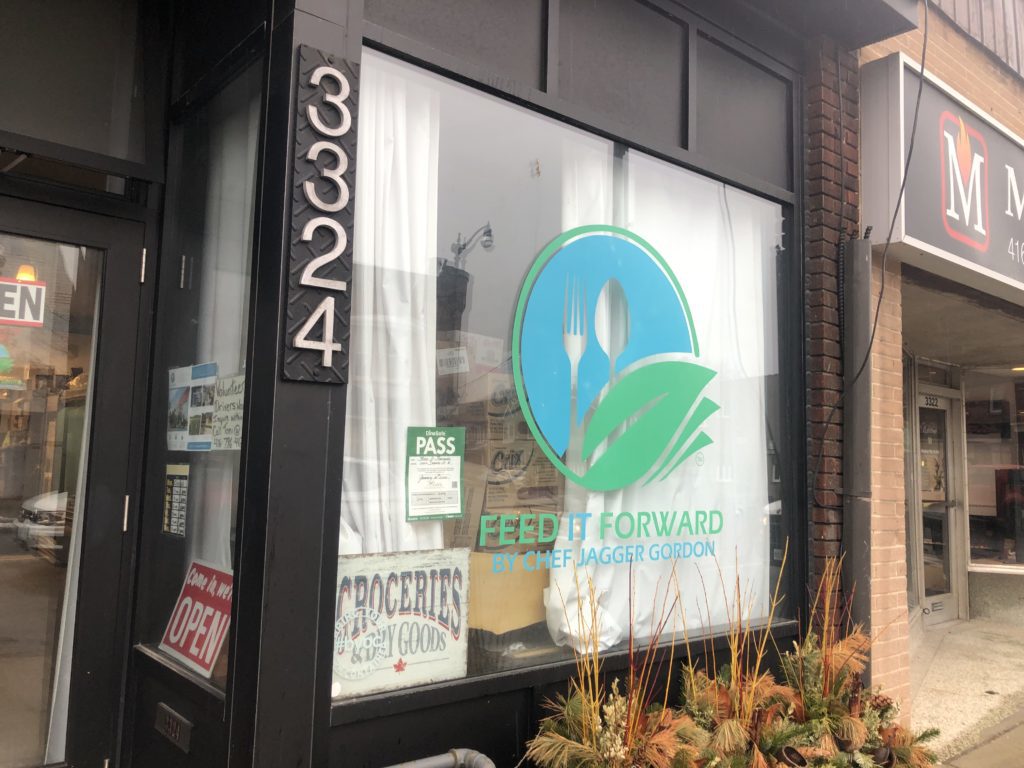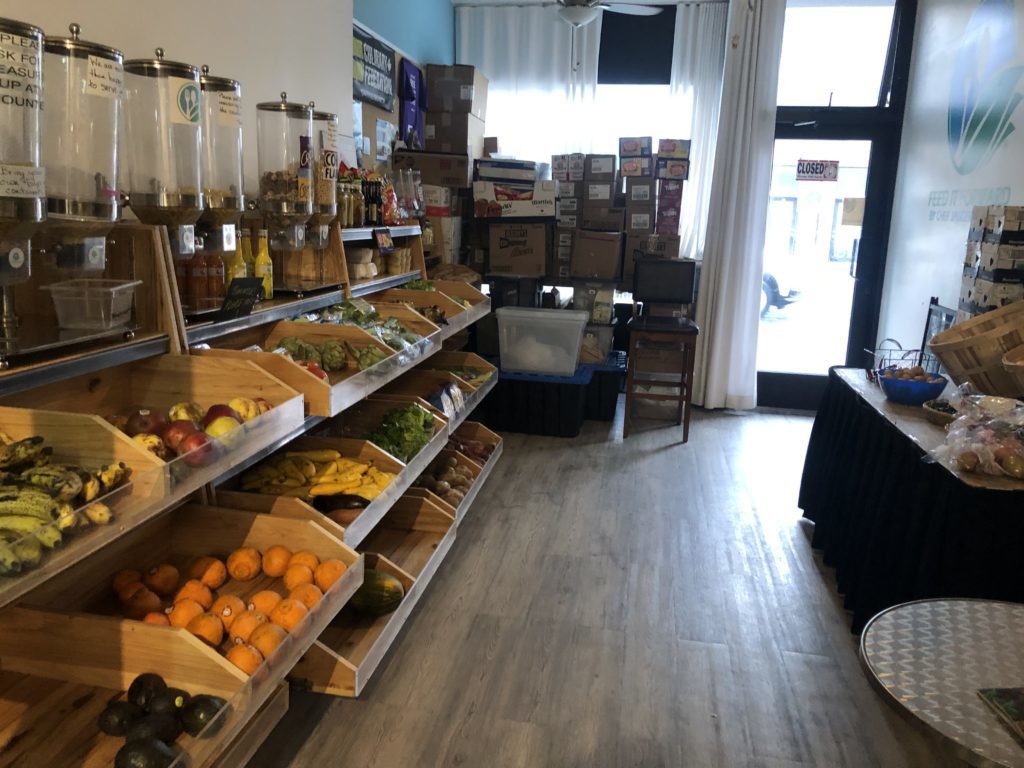By Rachel Parent
Silence fills the streets; rush hour has become a rare sight. Roads devoid of vehicles leave room for empty streetcars following their routes, hardly ever stopping to pick up passengers. While the world has come to a halt due to the spread of COVID-19, people’s basic needs have not. Etobicoke is no exception; those who rely on food assistance have even fewer places to turn to. As some people over-purchase and hoard common necessities, food banks are receiving fewer donations, meaning they are able to help fewer people.
With job insecurity, food shortages in grocery stores, and continuous bills to pay, an ever-growing food crisis is emerging. Yet, amongst the abandoned shops and businesses on Dundas Street West lies one of the few places still open, an organization trying to address this issue.
It’s a pay-what-you-can grocery store started by Feed It Forward (FIF), a non-profit organization. This was the first of its kind, and is one of the main ways the organization gets food to people.
Since its creation in 2014, Feed it Forward, with a dedicated team of volunteers, has been rescuing food that might otherwise have gone to waste.
To date, the organization, including the pay-what-you-can grocery store, has served and distributed 230,400 meals, saving 730,000 pounds of food from reaching landfills. This number will only continue to grow with the meals they are delivering to those in need, the elderly, immunocompromised, and even their pets.
As restaurants and small businesses have begun closing their doors to customers in order to stop the spread of COVID-19, FIF is ramping up their efforts.
“My team and I have been rescuing food all over the city and preparing meals, so we are now at over 32,000 meals that we’ve prepared… ,” said Jagger Gordon, a Toronto based chef and the founder of Feed It Forward.
To reach this impressive achievement, the non-profit has been asking restaurants to donate food from their fridges rather than tossing it. Due to this initiative, FIF is now receiving food from all over the country including Calgary, Montreal and Vancouver.
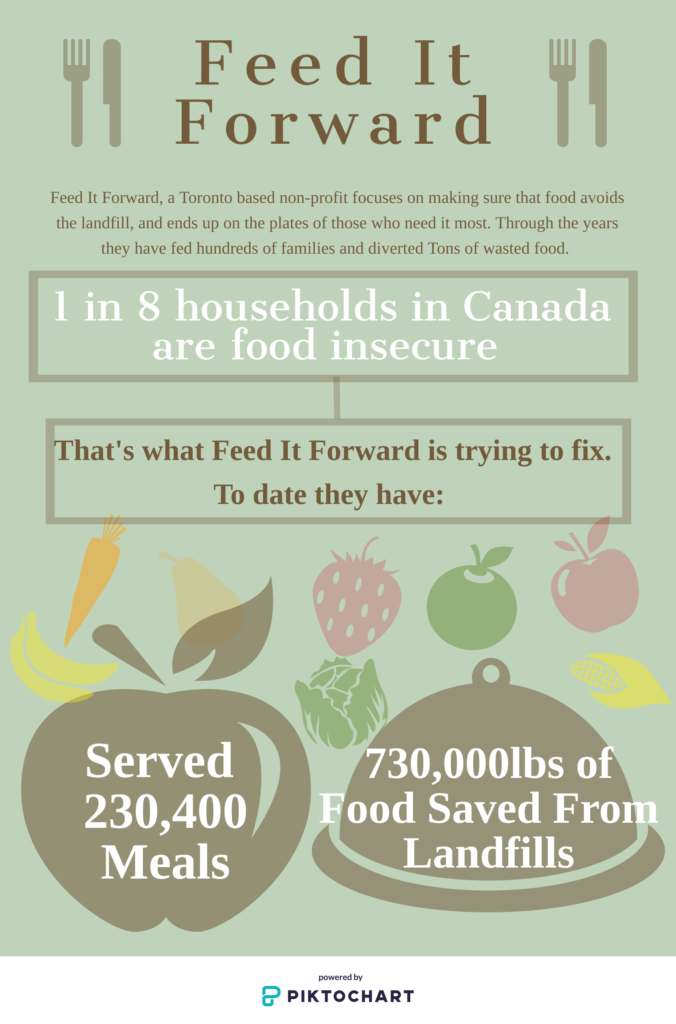
People will have access to the ready-made meals either by delivery or at the pay-what-you-can grocery store, where, in addition to the frozen options, they offer fresh fruits and vegetables for those who are able to come into the store to pick out in-person.
The store, modest in appearance, may fit no more that 20 individuals, but its size is no indicator of its impact, having become a food refuge for thousands across Toronto.
Flyers hanging on by single strands of tape flutter in the wind at the entranceway, displaying information on food waste. The inside is an exhibition of brightly coloured posters with inspiring messages covering corked bulletin boards and walls.
The earthy smell of potatoes and root vegetables drifts through the air as mechanical hums of the refrigerators combine with the static sound of an old radio. Woven baskets harbour varieties of fruits and vegetables, from peppers, lettuce and potatoes to raspberries and strawberries. All free for those who need it. The pay-what you can model means that if you struggle with food insecurity, all “purchases” are on the house.
FIF works on a system of both monetary and food donations. The majority of the food received is the excess from grocery stores, food terminals, and restaurants, some of it bearing small imperfections, such as light bruising. While the food is perfectly edible and healthy for anyone to eat, it becomes “unsellable” in the eyes of mainstream markets due to its imperfect appearance. Rather than letting this go to waste, FIF takes advantage of the opportunity to place this food in the hands of those who need it. During the COVID-19 crisis, it’s no different. Restaurants donating their leftover food will be contributing to thousands of meals for those who wouldn’t be able to grocery shop under current circumstances.
The stacks of full boxes are plastered with colourful logos from well known brands. They pile to the ceiling and block the large window at the store’s entrance, leaving the usually bright space in shadows. The brown cardboard boxes are filled with food that has yet to be put into inventory or delivered to shelters, all food that would have ended up in landfills, rather than on people’s plates. According to the Commission for Environmental Cooperation, in Canada there’s no lack of food to go around, as we currently waste approximately 13-million tons of food per year – from harvest to consumer; much of this could be repurposed.
With the spread of COVID-19 becoming ever more dangerous, safety precautions are being taken to minimize exposure for the staff and customers. Only three volunteers are allowed to work in the store at any given time. They move meticulously, weaving in and out the storage room to unpack boxes; cutting the cardboard tightly bound by tape, putting away new inventory, greeting customers, and repeating the process.
Hilary Thom, a frequent helper, says volunteering can be a challenging decision as her personal health could be put at risk. “It’s a dilemma that I have pretty much on a daily basis, but what we do for the community is so important… the community, people with food insecurities, they’re frightened, and they’re even more in need now.”
She also believes that their job goes beyond feeding people. It is about education. “Although the Prime Minister says the message will get out to everybody, there are people that don’t have access to the media.” She hopes to be able to spread awareness amongst the customers in the store about preventative actions they can take against COVID-19.
When people’s health and livelihoods are at stake during these times, the importance of community efforts like FIF have become more important than ever.
John, another volunteer at FIF, (who has asked that we leave out his last name) has experienced food insecurity himself. He didn’t always know where his next meal would come from, and this inspired him to volunteer at the store to help others. “I have a few people coming in here every week who’re crying, and when they leave they’re not crying. Hopefully they’re smiling, and they have some kind of hope that no matter what they’re going through, paying the rent or whatever, their children can eat tomorrow. You take that worry off of someone.”

